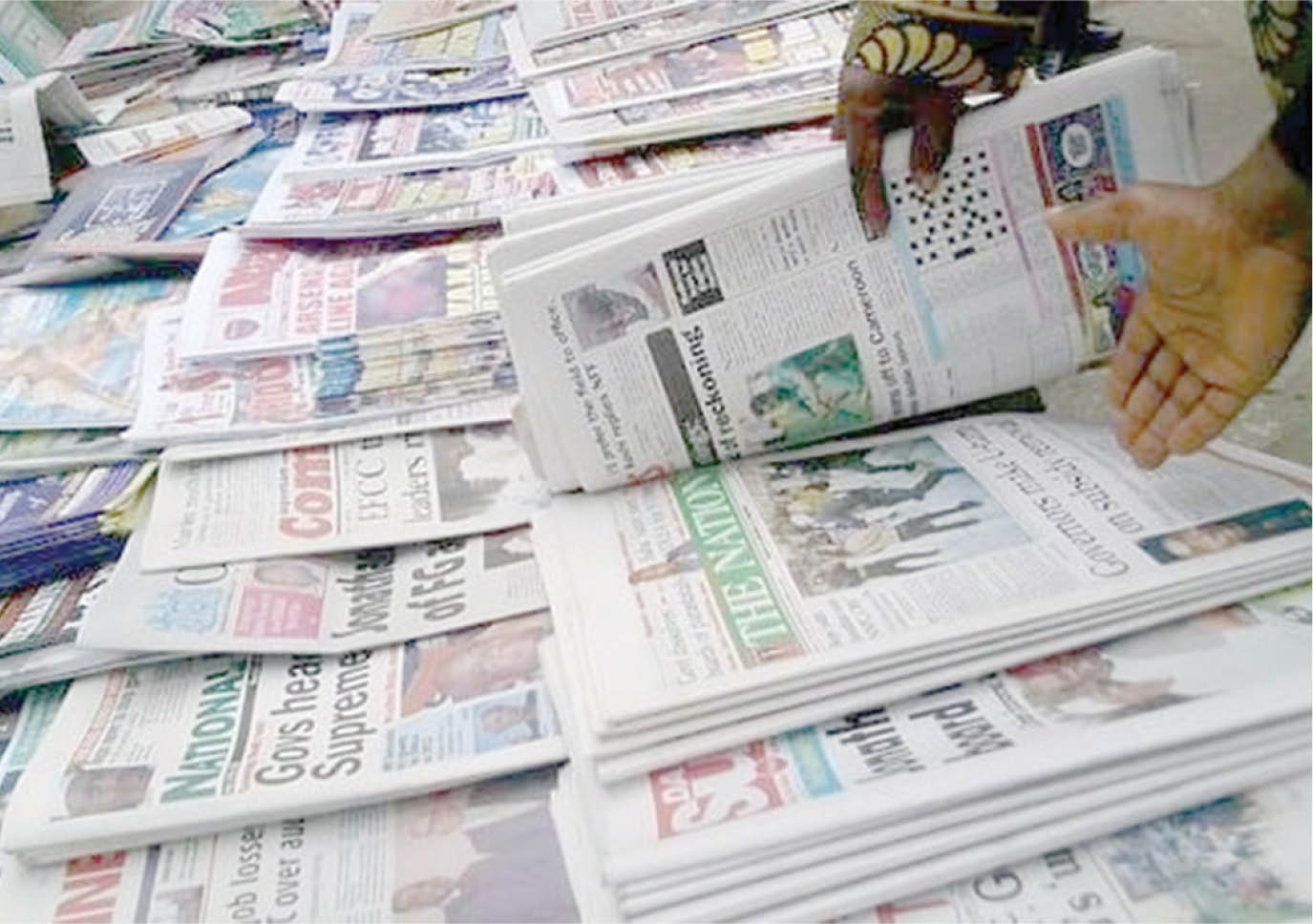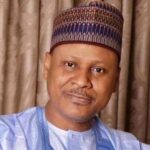In my column, Who are they? (The Ombudsman, Daily Trust, May 27, 2018), I made the following points:
One. “We need to know our rulers in the executive and the legislative branches of government. We need to know the antecedents of the men and women hand-picked by the godfathers in all the political parties as state governors and members of the national and state legislatures. If we do not know them, what can we expect from them? Public offices are not supposed to be dashed to those who make the godfathers feel good.
- How Boko Haram survives on weapons stolen from Nigerian military
- Malaria still killing Nigerians in droves
Two. “The role of the media in this instance becomes more critical in the absence of a primary custodian of our electoral system. The electoral act empowers the political parties to field candidates of their choice for elections. This means the party moguls exercise an unquestionable right to impose men and women on their parties. The party members are denied the right to participate in the nomination process. The party primaries are a ruse and a sickening fraud.
Three. “It serves the political interests of the godfathers to make the system entirely opaque. But it does not serve the interests of the people. In a democracy, the media are part of the weapons in the people’s struggle for an open government. The media, on behalf of the people, must exercise their watch dog role to question the competence, the character and the suitability of those who the party godfathers anoint as our potential leaders. They must expose those with an unsavoury past who are not morally fit to lead us.
Four. “This is not an unusual burden for the media. It would be in keeping with the primary professional duties of the media to inform and educate the people on who and who are about to rule them in the executive and the legislative branches of government. The cynical imposition of unknown quantities by the godfathers is part of the great damage the party leaders do to our party system and good governance. Leading people is not about wealth. It is about character. Those with dirty money should not be allowed to continue to buy their way into public offices. The character of the individual in a public office defines that office in terms of responsibilities to the country and the people.
Five. “The American news media show the rest of us good examples of how the news media can shine light on the opacity in politics and government and help the people to judge the suitability and the competence of those who seek to lead them or represent them in the legislative houses. Thanks to their tradition of meticulous exposure and questioning of candidates for public and elective offices, they make sure that no one with a questionable past is given the chance to continue to cheat the people and the country.
Six. “Our media too can make this part of their tradition. We too can learn and follow their worthy example. We too have a duty to take our watch dog role seriously. We too must exercise our constitutional right to question our political leaders and go beyond what they say to what they do. It takes one newspaper to begin this process. The Daily Trust titles, given their penchant for investigative reporting, can lead the way. We must prevent the men and women with soiled hands and tattered reputations from being crowned our leaders at all levels of government.
Seven. “Here is what happened in 1999. Salisu Buhari, was elected speaker of the House of Representatives. His political opponents helped TheNews magazine to expose him for what he was. His age and his educational qualifications were found to be entirely false. He was tried and convicted and despite his instant pardon by President Obasanjo, his political sun dipped behind the fog of oblivion. Two senate president, Evans Enwerem and Adolphus Wabara, were exposed by the news media too. Had we continued along that line, I am sure that the activities of the political leaders would be less opaque now. Our country would have been better for it.
Eight. “Senator Nuhu Aliyu, a former crack detective who retired as deputy inspector-general of police, once said he was horrified to see some of the drug barons and armed robbery kingpins he once arrested sitting in the senate and the House of Representatives as our law makers. Sadly, he did not carry out his threat to name names. And so, they got away with it because they had the qualification that really mattered to the party barons – money.
Nine. “If the media do not rise up to the challenge of becoming the primary custodian of our electoral process, good governance would continue to elude us.
Ten. “Wake up, Daily Trust. Yes, you can help the media put their foot in the door of an open government.”
Sections 147(2) and 192(2) of the constitution require the national assembly and the state assemblies respectively to confirm nominees by the president and the state governors for appointment as ministers, commissioners and sundry public officers. The process is meant to ensure that the men and women so approved by the legislators have no skeletons rattling in their cupboards. You cannot silence skeletons in the cupboards. They love to rattle. If they are not heard now, they would be heard later and usually at moments of embarrassment to the appointing authorities.
The confirmation process of such high profile nominees for top public offices by the federal and state legislatures has become sadly whimsical. No serious effort is made by the legislators to probe the antecedents of the nominees. These honourable members have abdicated their duty to rigorously interrogate the nominees and ensure that they are deemed to be fit and proper persons to serve in high profile public offices.
This is a serious dereliction of duty on the part of the legislators. But it is also done for political reasons. Some nominees appearing before the senate are simply told to take a bow because they are either too important or too famous to be subjected to the elementary routine of a confirmation process. No nominee is rejected; all of them are approved by the federal and state law-makers because the president and the state governors dictate what happens and how it should happen.
If we do not remedy this crass failure of legislative responsibility we would continue to have problems with the running of our governments by men and women we do not really know. We do not know their antecedents; we do not know what they stand for and we do not know what they think of our national problems. These are not minor matters because knowing our public officers and their views on our national problems should matter to us and our country.
Ali Isa Pantami, minister of communication and digital economy, passed the confirmation process in 2019 and thus made it to the executive council of the federation. He is in the news now for the wrong reasons. He has been found to have written and spoken in support of Al Qaeda and the Taliban and by implication, other terrorist groups. But don’t worry: he is not in a struggle to retain his appointment.
Public controversy swirling around him with some people wanting him to resign; others wanting the president to fire him would amount only to so much fouling of the air. Nevertheless, his past has caught up with the minister. But he is man enough to own up his missteps as a young and radicalised university student. He says he has renounced his earlier position and now engages in rescuing the misguided from the terrorist groups. Good. He is doing his penance.
Pantami’s is most unlikely to be the worst case among those of his colleagues in the federal cabinet. Something went wrong and he was exposed. By my conservative estimate, more than half of the president’s men and women have a past they cannot be proud of. They may never be found out, partly thanks to their luck and partly because both the legislature and the news media are remiss in their public duties.
My take is that the media should step in where the legislators have failed us. The watch-dog role assigned the media by the constitution of the Federal Republic is a sacred duty to the fatherland. As I pointed out in my column under reference, “the provision was informed by a) the people’s right to know and b) to constitutionally and legally strengthen the watchdog role of the media. The objective is to have an open and transparent government.”
I reiterate my call on the Daily Trust group to take up the challenge and help to set the tone for a less opacity and more transparency in our governments.

 Join Daily Trust WhatsApp Community For Quick Access To News and Happenings Around You.
Join Daily Trust WhatsApp Community For Quick Access To News and Happenings Around You.


